Menopause is a natural biological process that marks the end of a woman’s reproductive years. It is a significant milestone in a woman’s life, but it can also be a challenging time. Menopause symptoms can vary from woman to woman, and some women may experience more severe symptoms than others. In this article, we’ll cover everything from perimenopause signs to natural remedies for menopause.
Understanding menopause and perimenopause is crucial for women who are approaching this life stage. Perimenopause is the transitional period leading up to menopause when hormone levels begin to decline. Menopause occurs when a woman has not had a menstrual period for 12 consecutive months. During this time, women may experience a range of symptoms, including hot flashes, mood swings, and sleep disturbances. In this article, we will provide insights into the different stages of menopause and the symptoms associated with each stage.
Symptoms and relief strategies are also important topics to consider when discussing menopause. Hormonal changes during menopause can lead to a range of symptoms, including hot flashes, vaginal dryness, and weight gain. We will explore different relief strategies, including hormone replacement therapy (HRT), natural remedies, and lifestyle changes, to help women manage their symptoms and improve their quality of life.
Key Takeaways
- Menopause is a natural biological process that marks the end of a woman’s reproductive years.
- Understanding the different stages of menopause and the symptoms associated with each stage is crucial for women approaching this life stage.
- Relief strategies, including hormone replacement therapy (HRT), natural remedies, and lifestyle changes, can help women manage their symptoms and improve their quality of life.
Understanding Menopause and Perimenopause
Menopause is a natural biological process that marks the end of a woman’s reproductive years. It is defined as the absence of menstrual periods for 12 consecutive months. Perimenopause, on the other hand, is the period of time leading up to menopause when a woman’s body begins to transition from reproductive to non-reproductive. This period can last several years and is marked by hormonal fluctuations that can cause a range of symptoms.
Hormone Levels and Menstrual Cycle Changes
During perimenopause, a woman’s hormone levels begin to fluctuate, causing changes in the menstrual cycle. Estrogen levels may rise and fall, causing irregular periods or heavy bleeding. Progesterone levels may also fluctuate, leading to shorter or longer menstrual cycles. As menopause approaches, estrogen levels decrease, leading to the cessation of menstrual periods.
Early Signs and Premature Menopause
Some women may experience early signs of perimenopause, such as changes in menstrual cycles, as early as their mid-30s. Premature menopause, also known as primary ovarian insufficiency, occurs when a woman’s ovaries stop functioning before the age of 40. This can be caused by genetics, autoimmune disorders, or medical treatments such as chemotherapy.
It is important for women to be aware of the signs and symptoms of menopause and perimenopause so that they can seek medical advice and support if needed. Regular check-ups with a healthcare provider can help to identify any underlying health issues and ensure that women receive appropriate care and treatment.

Daily Balance
Multi-symptom relief gummies made with hormone-free, naturally powerful ingredients that are clinically shown to reduce hot flashes by 50%.
Symptoms and Relief Strategies
Menopause is a natural biological process that marks the end of a woman’s reproductive years. It is caused by a decrease in the production of estrogen and progesterone hormones in the ovaries. Menopause can cause a wide range of symptoms, including hot flashes, mood swings, and sleep disturbances. However, there are several strategies that women can use to relieve these symptoms and improve their overall well-being.
Hot Flashes and Night Sweats
Hot flashes and night sweats are the most common symptoms of menopause. They are caused by changes in the body’s temperature regulation system, which can cause sudden and intense feelings of heat, sweating, and flushing. To relieve hot flashes and night sweats, women can try the following strategies:
- Dress in layers to easily remove clothing when feeling hot.
- Keep the bedroom cool and well-ventilated.
- Avoid spicy foods, caffeine, and alcohol.
- Practice relaxation techniques such as deep breathing and meditation.
- Consider hormone replacement therapy (HRT) or other medications.
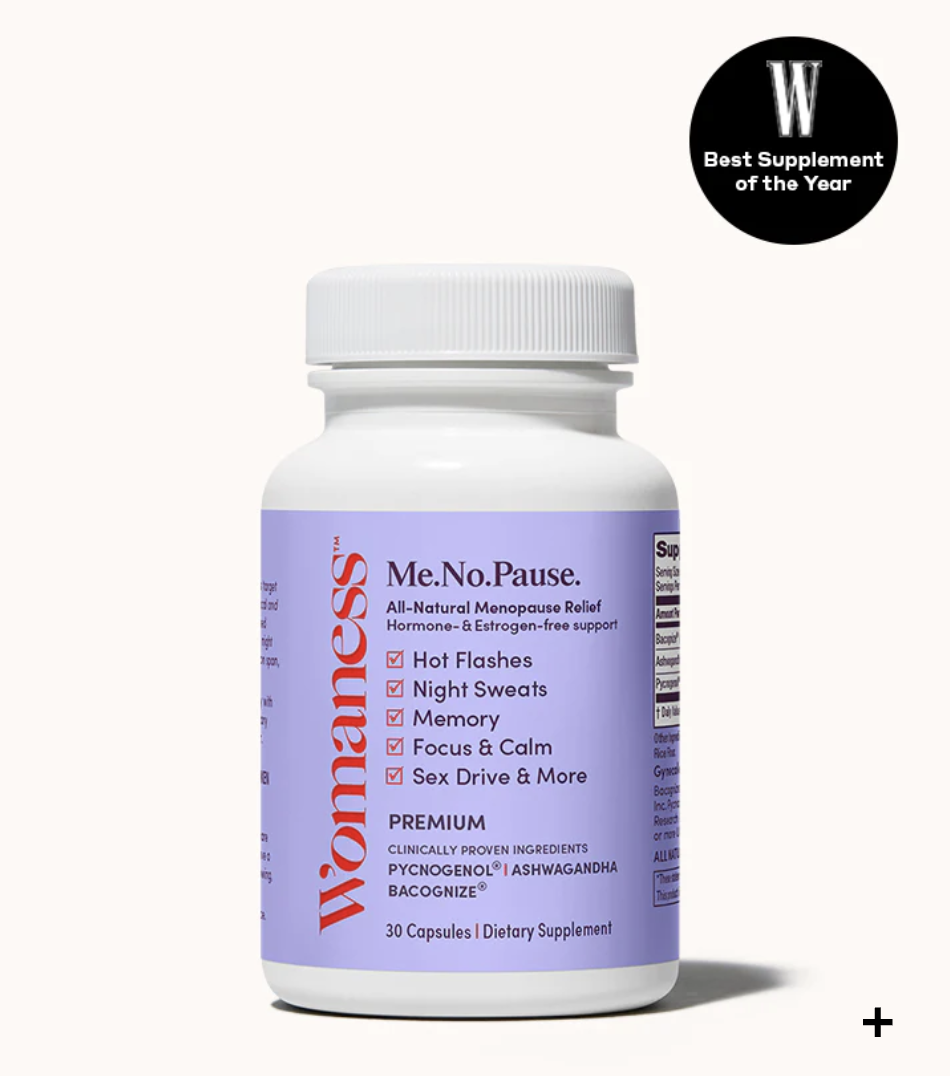
Me-No-Pause
Just one pill a day helps with more than six symptoms, like hot flashes, night sweats, brain fog, focus, calm, & sex drive.
Mood Swings and Emotional Well-Being
Mood swings and emotional changes are also common symptoms of menopause. Women may experience feelings of irritability, anxiety, and depression. To improve emotional well-being and relieve mood swings, women can try the following strategies:
- Exercise regularly to boost mood and reduce stress.
- Practice stress-reduction techniques such as yoga or tai chi.
- Talk to a therapist or counselor about emotional changes.
- Consider HRT or other medications.
Sleep Disturbances and Insomnia Remedies
Sleep disturbances and insomnia are common symptoms of menopause. Women may experience difficulty falling asleep or staying asleep, as well as waking up feeling tired. To improve sleep and relieve insomnia, women can try the following strategies:

Namastay in Bed
Namastay In Bed is a plant-based supplement that helps ease your brain into a normalized sleep cycle.
- Establish a regular sleep schedule and stick to it.
- Create a relaxing bedtime routine.
- Avoid caffeine, alcohol, and heavy meals before bedtime.
- Keep the bedroom cool, dark, and quiet.
- Consider HRT or other medications.
Menopause can cause a variety of symptoms that can impact a woman’s quality of life. However, there are several strategies that women can use to relieve these symptoms and improve their overall well-being. By following the tips outlined above, women can manage hot flashes, mood swings, and sleep disturbances, and enjoy a healthy and fulfilling life during and after menopause.
Hormone Replacement Therapy (HRT)
Benefits and Risks
Hormone Replacement Therapy (HRT) is a treatment that replaces the hormones that the body stops producing during menopause. HRT can help relieve symptoms such as hot flashes, vaginal dryness, and mood swings. It can also help prevent bone loss and reduce the risk of certain diseases such as osteoporosis and colon cancer.
However, there are also risks associated with HRT. It can increase the risk of breast cancer, blood clots, stroke, and heart disease. The risks and benefits of HRT should be carefully considered by the individual and their healthcare professional.
Estrogen and Progesterone Treatments
There are two main types of HRT: estrogen-only therapy and combined estrogen and progesterone therapy. Estrogen-only therapy is recommended for women who have had a hysterectomy, as they no longer have a uterus. Combined estrogen and progesterone therapy is recommended for women who still have a uterus, as progesterone helps protect the uterus lining from cancer.
Estrogen and progesterone can be taken in different forms, including pills, patches, creams, and vaginal rings. The dosage and duration of HRT should be determined by a healthcare professional based on the individual’s medical history and symptoms.
It is important to note that HRT is not suitable for everyone. Women who have a history of breast cancer, blood clots, stroke, or heart disease may not be able to take HRT. It is important to discuss the risks and benefits of HRT with a healthcare professional before starting treatment.
Lifestyle and Natural Remedies
Diet and Exercise
Maintaining a healthy lifestyle is important during menopause to help manage symptoms such as weight gain and hot flashes. A balanced diet that includes plenty of fruits, vegetables, whole grains, and lean protein can help women maintain a healthy weight and reduce the risk of chronic diseases. It is recommended to limit the intake of processed foods, sugar, and saturated fats.

#1 Fasting App
Ready to see a happier version of yourself? Track mood, weight, hydration, steps and more!
Regular exercise can also help women manage menopause symptoms and improve overall health. Exercise can help reduce the risk of weight gain, improve bone density, and reduce the risk of heart disease. Women should aim for at least 30 minutes of moderate-intensity exercise most days of the week. Examples of exercise include brisk walking, cycling, swimming, and strength training.
Herbal Remedies and Supplements
Many women turn to herbal remedies and supplements to manage menopause symptoms. However, it is important to speak with a healthcare provider before taking any herbal remedies or supplements as they can interact with medications and have potential side effects.

Go With the Flow
Go With The Flow is a 100% plant-based supplement that supports you by providing menopause relief through herbal remedies.
Some commonly used herbal remedies for menopause include black cohosh, red clover, and dong quai. These herbs have been shown to help manage hot flashes and other menopause symptoms, but their effectiveness is still being studied.
Supplements such as vitamin D and calcium are important for bone health during menopause. Women should aim to get adequate amounts of these nutrients through their diet or supplements.
In conclusion, lifestyle changes and natural remedies can be effective in managing menopause symptoms. A healthy diet and regular exercise can help manage weight gain and improve overall health. Herbal remedies and supplements can also help manage symptoms, but it is important to speak with a healthcare provider before taking any supplements.
Sexual and Reproductive Health
Vaginal Dryness Solutions
One of the most common symptoms of menopause is vaginal dryness, which can lead to discomfort during sex. This occurs due to the decrease in estrogen levels, which causes the vaginal tissues to become thinner and less elastic. However, there are several solutions available to alleviate this symptom.
One option is vaginal estrogen therapy, which involves using a cream, tablet, or ring containing estrogen to help restore vaginal moisture and elasticity. Another option is using a water-based lubricant during sex to reduce discomfort and dryness. It’s important to note that oil-based lubricants can damage latex condoms and increase the risk of infections.
Additionally, practicing good vaginal hygiene and avoiding harsh soaps or douches can also help prevent further irritation and dryness.
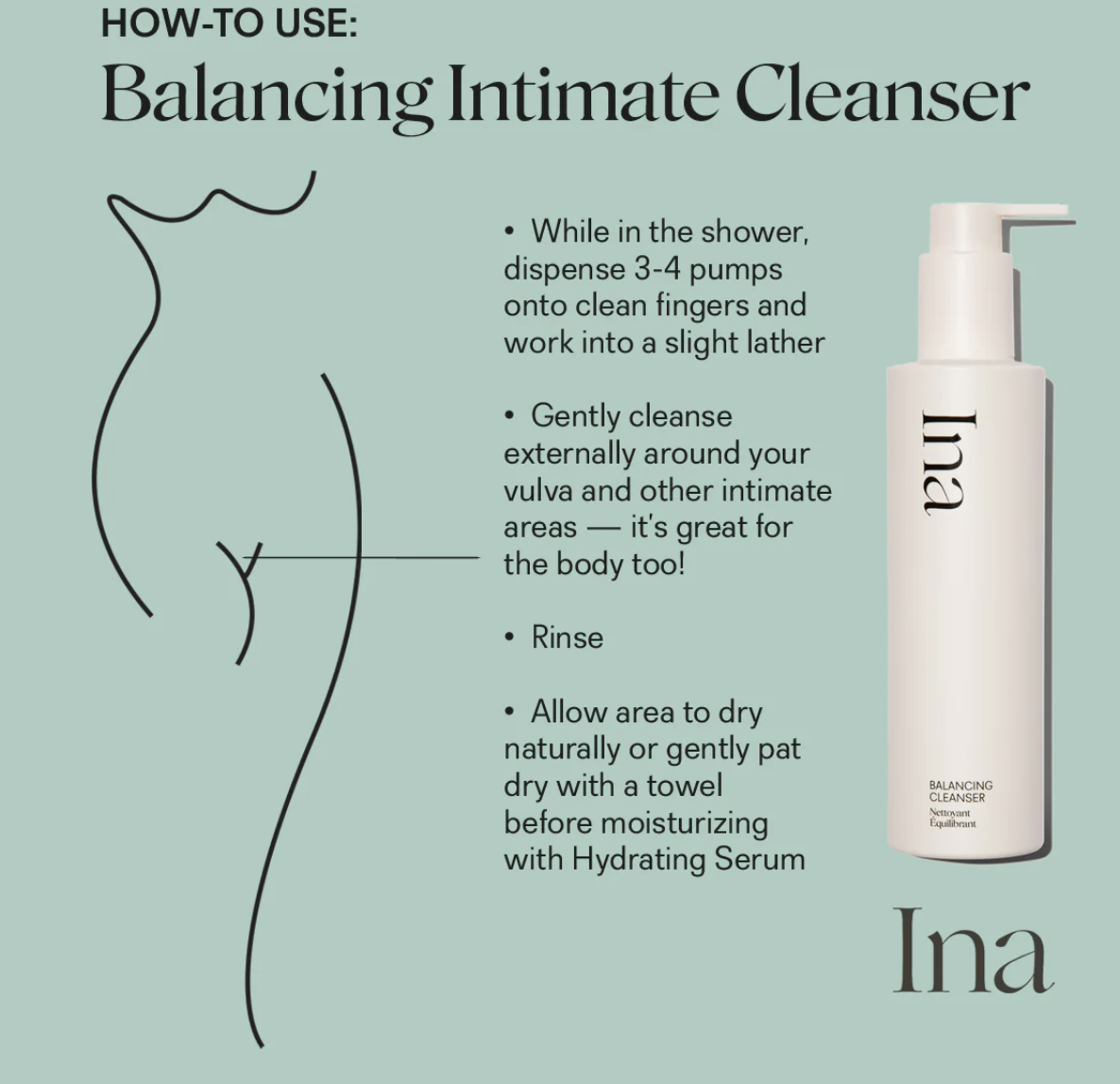
Intimate Cleanser
An extremely gentle pH-appropriate cleanser (not a harsh soap) specifically for delicate, dry or irritated vulvar skin (outer genitalia).
Libido and Sexual Satisfaction
Menopause can also affect sexual function and libido, leading to a decrease in sexual desire and satisfaction. However, there are ways to improve sexual health and enjoyment during this time.
Regular exercise and a healthy diet can help boost energy levels and improve overall well-being, which can positively impact sexual function. Communication with a partner about concerns and desires can also help improve intimacy and satisfaction.

Women’s Intimate Elixir
This ultra-lightweight, water-based lubricant is formulated especially as a menopause lubricant for women with low estrogen
For those experiencing a decrease in libido, there are several options available, including hormone replacement therapy (HRT) or natural remedies such as herbal supplements or acupuncture. It’s important to consult with a healthcare provider before starting any new treatment.
Overall, while menopause can bring about changes in sexual and reproductive health, there are solutions available to help manage symptoms and improve overall well-being.
Long-Term Health Considerations
Bone Health and Osteoporosis
As women age, their risk of developing osteoporosis increases. Menopause can also accelerate bone loss due to the decrease in estrogen levels. Therefore, it is crucial for women to take steps to maintain their bone health during and after menopause.
One way to do this is by consuming foods that are rich in calcium and vitamin D, such as dairy products, leafy green vegetables, and fortified cereals. Regular exercise, particularly weight-bearing activities, can also help strengthen bones and reduce the risk of fractures.
In addition, women may consider talking to their healthcare provider about bone density testing and medications that can help prevent or treat osteoporosis.
Heart Health and Menopause
Heart disease is the leading cause of death among women in the United States, and menopause can increase a woman’s risk of developing heart disease. This is due in part to the decrease in estrogen levels, which can affect cholesterol levels and blood vessel function.
To maintain heart health during and after menopause, women should strive to maintain a healthy weight, engage in regular physical activity, and eat a balanced diet that is low in saturated and trans fats. Quitting smoking is also important for reducing the risk of heart disease.

Aura Essentials
Menopause Gummies – Alleviates Hot Flashes
✦ Boost energy
✦ Stabilizes mood
✦ Levels mood swings
Women may also consider talking to their healthcare provider about their cardiovascular risk factors and whether medications or lifestyle changes are necessary to maintain heart health.
Mental and Cognitive Effects
Menopause and Mental Health
Menopause can have a significant impact on mental health, particularly in regards to anxiety and depression. Women going through menopause may experience an increase in anxiety and depression due to the hormonal changes they are experiencing. These changes can affect the levels of serotonin and other neurotransmitters in the brain, leading to mood changes.
It is important for women to seek support and treatment if they are experiencing mental health issues during menopause. This may include therapy, medication, or other forms of support. Exercise, mindfulness, and other self-care strategies can also be helpful in managing mental health symptoms.
Cognitive Changes and Concentration
Menopause can also affect cognitive function and concentration. Some women may experience brain fog, forgetfulness, and difficulty with concentration. This is due to the hormonal changes that occur during menopause, which can affect brain function.
However, it is important to note that not all women will experience cognitive changes during menopause. Additionally, cognitive changes can also be caused by other factors, such as stress, lack of sleep, and other health conditions.
To manage cognitive changes during menopause, women can try to reduce stress, get plenty of sleep, and engage in regular exercise. Brain exercises, such as puzzles and memory games, can also be helpful in maintaining cognitive function.
Physical Changes and Symptoms Management
Menopausal Weight Gain
One of the most common physical changes women experience during menopause is weight gain. Hormonal changes can cause a shift in body composition, leading to an increase in abdominal fat. This can increase the risk of health problems such as heart disease and diabetes.

Weight Loss Protocol
The Ultimate Weight Loss Protocol does not rely on “quick fixes” to see unsustainable progress.
To manage menopausal weight gain, it is important to maintain a healthy diet and exercise regularly. Eating a diet rich in fruits, vegetables, whole grains, and lean protein can help control weight. Additionally, incorporating strength training exercises can help build muscle mass and increase metabolism.
Managing Skin and Hair Changes
Hormonal changes during menopause can also lead to changes in skin and hair. Skin may become drier and thinner, and wrinkles may appear. Hair may become thinner and more brittle.
To manage skin and hair changes, it is important to maintain a healthy lifestyle. Drinking plenty of water can help keep skin hydrated. Using moisturizers and sunscreen can also help protect skin. Additionally, eating a diet rich in vitamins and minerals can help promote healthy skin and hair.
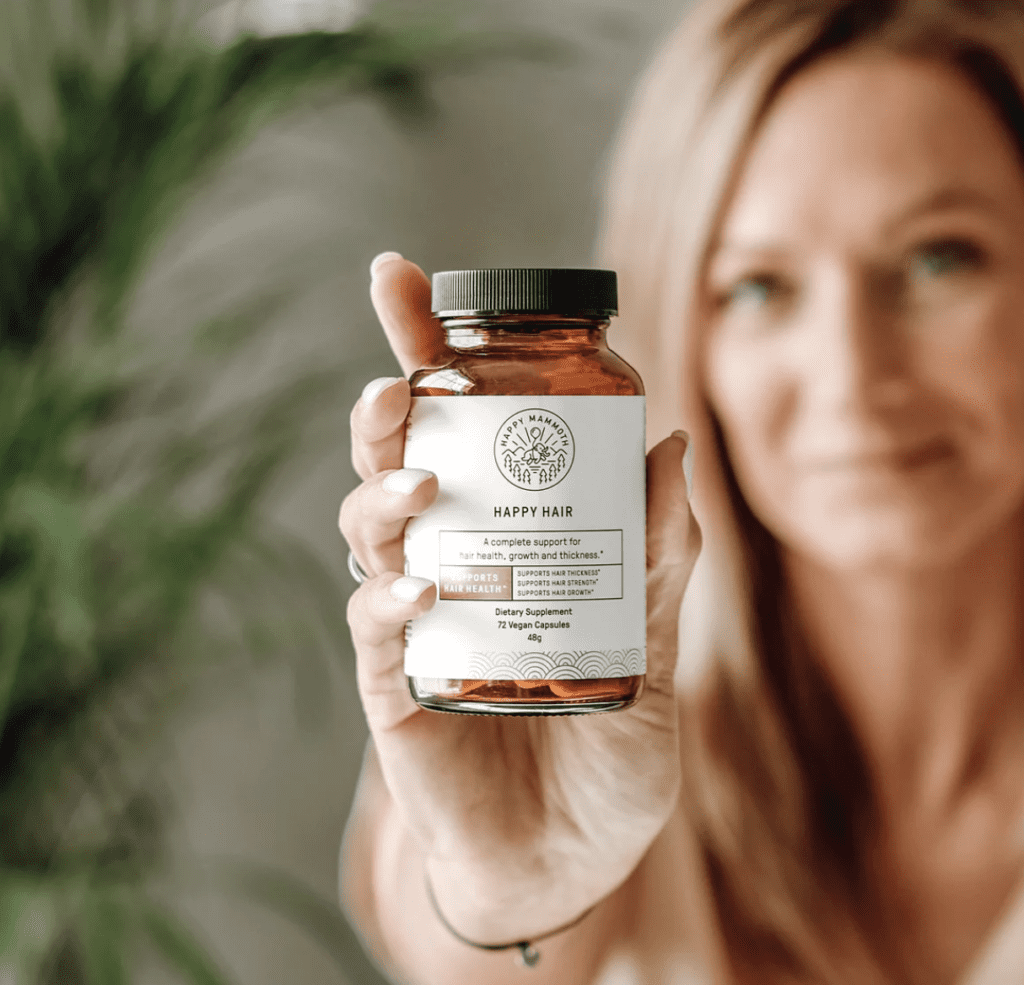
Overall, managing physical changes during menopause requires a combination of healthy lifestyle habits and medical intervention when necessary.
Support and Coping Strategies
Menopause can be a challenging time for many women, but there are various support and coping strategies available to help manage the physical and emotional symptoms. This section will explore some self-care and mindfulness techniques, as well as the benefits of joining support groups and seeking guidance from healthcare professionals.
Self-Care and Mindfulness
One of the most effective ways to manage menopause symptoms is through self-care and mindfulness practices. This can include things like regular exercise, healthy eating, and getting enough sleep. Additionally, practicing mindfulness techniques such as meditation or deep breathing exercises can help reduce stress and anxiety.
Other self-care strategies that may be helpful during menopause include staying hydrated, avoiding caffeine and alcohol, and taking time for yourself to engage in activities that you enjoy. It’s important to remember that self-care is not selfish and taking care of yourself can help you feel more balanced and in control.
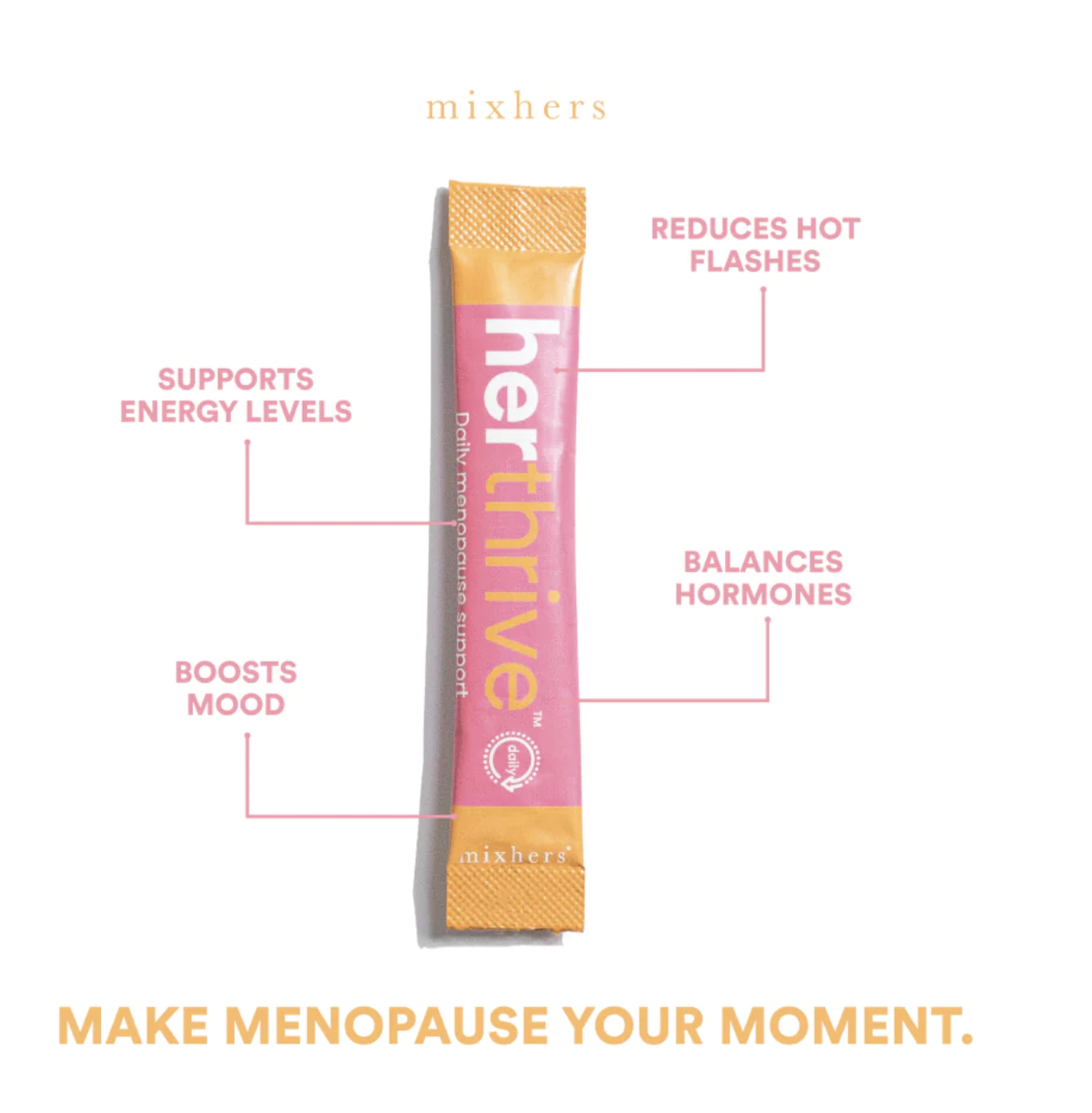
Her Thrive
Add to your water to help stop hormone fluctuations that lead to a variety of menopausal symptoms.
Support Groups and Healthcare Professional Guidance
Joining a menopause support group can be an excellent way to connect with other women who are going through similar experiences. These groups can provide a safe and supportive space to discuss symptoms, share coping strategies, and offer emotional support.
In addition to support groups, seeking guidance from healthcare professionals can also be beneficial. A doctor or healthcare provider can help develop a personalized treatment plan that may include hormone replacement therapy (HRT) or other medications to manage symptoms. They can also provide guidance on managing stress incontinence, improving bone health, and addressing any mental health concerns.
There are many support and coping strategies available to help women manage the physical and emotional symptoms of menopause. By practicing self-care and mindfulness techniques, and seeking support from healthcare professionals and support groups, women can navigate this transitional period with greater ease and confidence.
Menopause is a natural biological process that marks the end of a woman’s reproductive years. While it is a normal part of life, it can also bring about a range of symptoms and changes that can impact a woman’s quality of life.
Some of the most common symptoms of menopause include hot flashes, night sweats, mood swings, and vaginal dryness. While these symptoms can be challenging, there are a variety of treatments and lifestyle changes that can help ease them.
Hormone replacement therapy (HRT) is a popular treatment option for menopause symptoms, but it is important to talk to a healthcare provider to determine if it is right for you. Natural remedies, such as herbal supplements and lifestyle changes like regular exercise and a healthy diet, can also be effective in managing symptoms.
In addition to physical symptoms, menopause can also impact a woman’s emotional and mental health. Coping strategies like mindfulness, self-care, and social support can help women navigate the emotional ups and downs of this transition.
Overall, menopause is a natural and normal part of life, but it can also be a challenging one. With the right support and resources, women can manage their symptoms and maintain their overall health and well-being during this transition.
Frequently Asked Questions
What are the most effective natural treatments for menopause symptoms?
Some natural remedies that can help manage menopause symptoms include:
- Black cohosh
- Soy
- Flaxseed
- Red clover
- St. John’s wort
- Acupuncture
- Yoga
However, it’s important to note that not all natural remedies are safe or effective for everyone. It’s best to consult with a healthcare provider before trying any natural treatments.
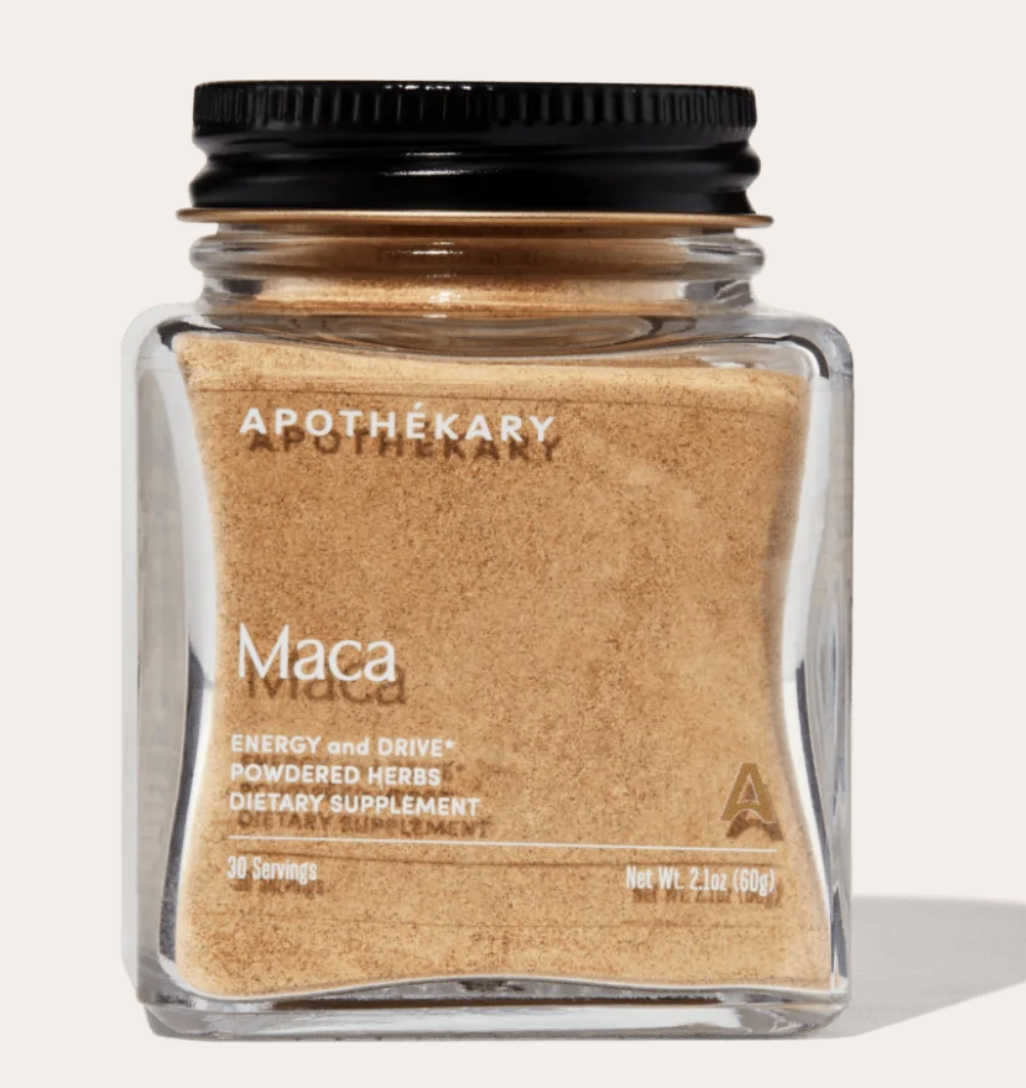
Apothekary Maca
Maca’s nutrient profile is impressive. It contains ample amounts of copper, vitamin C, and potassium–all essential nutrients for mood and energy.
How can perimenopause symptoms be distinguished from menopause?
Perimenopause is the transitional period leading up to menopause, during which hormone levels begin to fluctuate and symptoms may occur. Menopause is defined as the point in time when a woman has not had a menstrual period for 12 consecutive months.
Common symptoms of perimenopause include irregular periods, hot flashes, mood changes, and vaginal dryness. These symptoms may be similar to those experienced during menopause, but menopause is considered a distinct stage in a woman’s life.
What strategies help manage sudden weight gain during perimenopause?
Some strategies that can help manage weight gain during perimenopause include:
- Eating a balanced diet with plenty of fruits, vegetables, and whole grains
- Engaging in regular physical activity
- Getting enough sleep
- Managing stress
- Limiting alcohol and caffeine intake
It’s also important to talk to a healthcare provider about any concerns related to weight gain during perimenopause.
Which prescription medications are considered best for treating menopause?
Hormone replacement therapy (HRT) is a common treatment for menopause symptoms. It involves taking estrogen and often progesterone to replace the hormones that the body stops producing during menopause.
Other prescription medications that may be used to treat menopause symptoms include:
- Selective serotonin reuptake inhibitors (SSRIs)
- Gabapentin
- Clonidine
- VEOZAH™
It’s important to talk to a healthcare provider about the risks and benefits of each medication, as well as any potential side effects.
What are the safest options available for menopause treatment?
There is no one-size-fits-all answer to this question, as the safest treatment option will depend on a variety of factors, including a woman’s age, overall health, and individual symptoms.

Pleasure Serum
Pleasure Serum is the first and only product scientifically proven to effectively enhance arousal and orgasm.
Some women may find relief from menopause symptoms through lifestyle changes, such as exercise and a healthy diet. Others may benefit from natural remedies or prescription medications.
It’s important to talk to a healthcare provider about the best treatment options for individual needs and concerns.
How can hot flashes be quickly alleviated?
Some strategies that can help alleviate hot flashes include:
- Dressing in layers and removing clothing as needed
- Keeping the bedroom cool at night
- Drinking cold water or other cold beverages
- Using a fan or air conditioning
- Engaging in relaxation techniques, such as deep breathing or meditation
In some cases, prescription medications or natural remedies may also be effective in managing hot flashes. It’s important to talk to a healthcare provider about the best options for individual needs and concerns.












